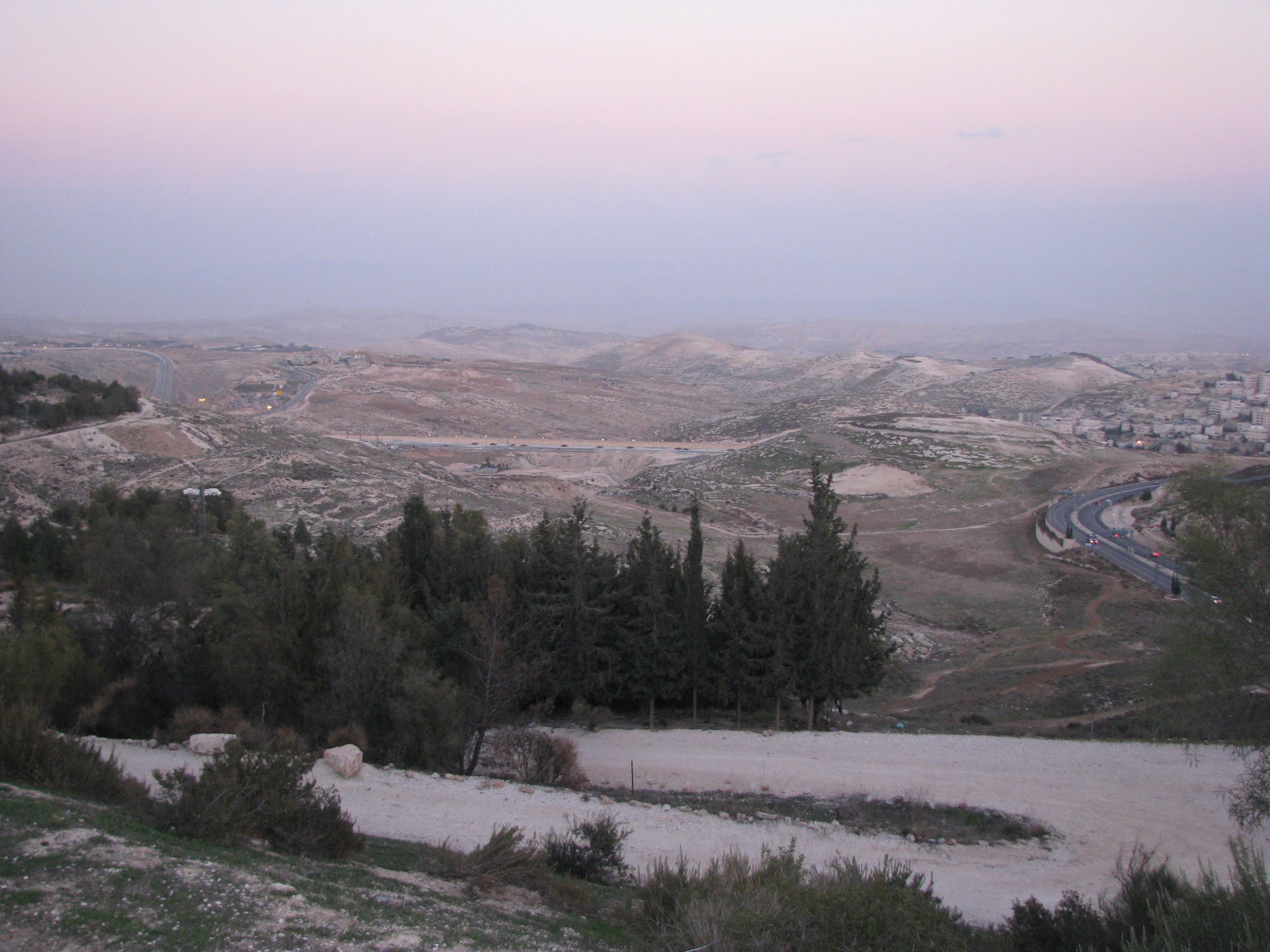 It is the Eve of the second Sabbath I’ve experienced while in Israel.
It is the Eve of the second Sabbath I’ve experienced while in Israel.
And, such a kind of day is not unusual to me . . . or so I thought. I have talked a lot about the practice of Sabbath taking and receiving in my community of friends and colleagues over the past several years. We often mention how horrible we are with it, how our lives are so hetic, and how our churches need more teaching on it. The consensus seems to be that we all need more Sabbath in our lives.
Yet, this week I walked into a country that takes the practice and concept of Sabbath very seriously and as I have been here, my mind has wandered into thinking that maybe I need to think of what it means all over again . . . .
On Friday afternoon as our group was returning from a day of meetings in the West Bank, there was much hurry to get back to Jerusalem before sundown. Why? One of our group members was of the orthodox tradition and needed to get to their home by sundown. I re-learned from him that Shabbat observers (the true ones according to them) believe in a complete rest of the earth on the Sabbath—no using any projects of the earth including cars, electricity, or even electric door keys in a hotel room.
When I asked one strict Sabbath observer about his religious practices, (I smiled when I thought of my seminary professor, Dr. Ellen Davis, the Duke folks reading this will know what I mean), he said: “Sabbath is about a day of rest from consuming anything that takes from the land.”
I was intrigued by the profound, yet simplicity of this explanation. “Now I get it,” I thought, “Yes, part of loving God is loving the earth. It is good to remember that the earth is the Lord’s and even the land needs rest."
But Sabbath in Jewish tradition, I learned, is more than whatever particular rules one follows between Friday night and Saturday early evening—it is about stopping and remembering that God is God and we are not. And because God is God it is OK to rest.
Everything in Jerusalem (at least on the West side of the city) was closed by sundown on Friday night. You couldn’t get food as normal in the hotel. If you wanted a taxi, you had to ask for an Arab driver, not an Israeli. Friday night was not for shopping unless you wanted to go to East Jerusalem.
It was an amazing experience to be a part of a civic culture that seemed to take its cues from the religious majority. And, we as American tourists, seeking to connect with this Jewish city were respectful of (or at least accepting) of Sabbath because hey, we had no choice.
With this being the case, I began to re-think what my definition of Sabbath was from my Christian perspective . . . as often is the case with any interfaith activity, you see how someone else shares or practices their beliefs and you come to better understand your own.
What I realized is that I honestly felt awkward in this scenario of being a Christian in a Jewish compliant culture. Sure, I wanted to be happy to celebrate Sabbath alongside my Jewish friends, but at the same time there was a bit of resentment in me because there was not nourishment or Sabbath rest for me in another tradition. It was taking so much energy out of me to learn as an outsider that it wasn't restful.
And, so today, is Sunday evening as I write and I’ve been conscious of this being my Sabbath all day. Originally, the Hagans' goal for this morning was to go to Bethlehem again by taxi. We wanted to attend worship at the Manger Square before leaving Jerusalem for Galilee. It would seem right that the Christians in the group would go to church on Sunday, right?
Yet, this morning, Kevin and I were so tired that we just couldn’t get up when our alarm went off. Our busy schedule here and the emotional overload of processing all we are learning had gotten to us. And so, we made the decision to cancel our plans and sleep a little long and engage in the spiritual practice of not rushing.
It was a lovely morning and our activities with our group this afternoon, I have to say, were more beautiful than they would have otherwise been. We spent a long time this afternoon at Newe Shalom—an intentional community of Palestinians and Israelis living together with social justice pursuits. It was a beautiful campus in the Judean hills with many peaceful spaces for meditation and prayer as we walked around. As we had a group reflection time with the most amazing view, I couldn’t help but think to myself, as I noticed my spirit resting within me that “This is Sabbath.”
While many have their own opinion of what Sabbath means, today I experienced my second Sabbath, the Christian one. I came to see that Sabbath is always about time to pause, time to ponder, time to worship, and time to just be.
My Sabbath may not look like the world stopping. My Sabbath might not impose my stopping on others. My Sabbath may or may not include public worship. But, on this trip, again Sabbath has found me.
I’m hoping to continue to find it at home in DC - even when my colleagues and taxi driver don’t remind me that we’ve got to get off the road because Sabbath is coming.